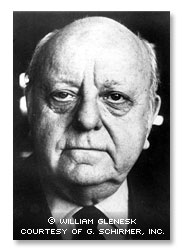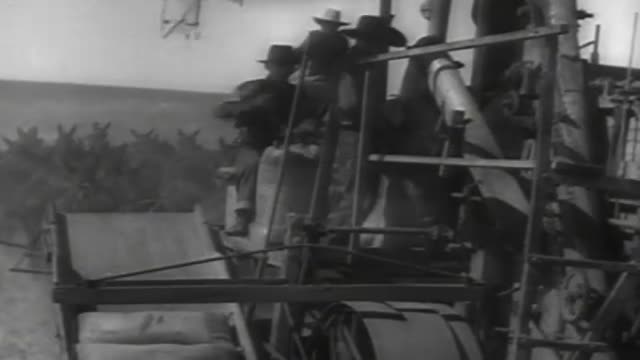
The American composer, critic and conductor Virgil Thomson studied at Harvard and was then able to spend some time in Paris, where he had lessons with Nadia Boulanger and met Copland, Cocteau, Les Six, Joyce, Satie, Hemingway and Gertrude Stein, returning to Paris after studies at the Juilliard School in New York. In America again in 1940, he was able to continue his earlier work as a writer and critic, while composing a series of influential works.
Stage Works
Thomson’s first opera with Gertrude Stein, Four Saints in Three Acts, first staged with a black cast in 1934, caused a scandal but established his reputation. It was followed by The Mother of Us All (a further collaboration with Stein) and, in 1968, Lord Byron. He also wrote music for ballets and for films, the latter including the score for Louisana Story.
Vocal and Instrumental Music
Songs by Thomson include settings of poems by Campion, Blake and Gertrude Stein; choral music ranges from Mass settings to a cantata based on poems by Edward Lear. His instrumental music is of some variety, including symphonies, ensemble works of varied inspiration and instrumentation, duo sonatas, and works for piano and for organ.
| Title | |
| THOMSON, V.: Plow that Broke the Plains (The) / The River | |

|
THOMSON, V.: Plow that Broke the Plains (The) / The River
Composer:
Thomson, Virgil
Artists:
Gil-Ordonez, Angel -- Post-Classical Ensemble
Label/Producer: Naxos |
